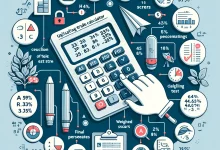Strategies for Effective Communication with Assignment Help Providers

Introduction
In the rapidly evolving landscape of education, students often find themselves grappling with an increasing workload and complex assignments. To alleviate this burden, many turn to assignment help providers, seeking expert assistance to navigate through the challenges of their academic journey. However, the effectiveness of this collaboration heavily relies on clear and efficient communication between students and assignment help providers. In this article, we will delve into strategies for fostering effective communication with assignment help providers, ensuring a seamless and successful partnership.
The Importance of Effective Communication
Effective communication forms the cornerstone of any successful collaboration, and the relationship between students and assignment help providers is no exception. Clear communication helps to establish mutual understanding, define expectations, and streamline the assignment process. It establishes the groundwork for a fruitful working relationship and guarantees alignment between both parties.
- Establishing Expectations: At the outset of the collaboration, it is crucial to set clear expectations. Students should communicate their specific requirements, deadlines, formatting guidelines, and any other pertinent details. Assignment help providers, in turn, should express their capabilities, scope of work, and any limitations. This mutual exchange of information helps to avoid misunderstandings and aligns both parties’ goals.
- Clarity in Instructions: Communication breakdown often arises from vague or ambiguous instructions. Students should provide comprehensive and precise assignment instructions to the help providers. Including details such as the assignment’s purpose, research questions, and desired outcomes can significantly enhance the quality of the assistance received.
- Regular Updates: Maintaining regular communication throughout the assignment’s progress is vital. Students should request updates from the provider and be responsive to any queries they may have. This iterative approach allows for real-time adjustments and ensures that the final deliverable aligns with the student’s vision.
Effective Communication Strategies
To optimize communication with assignment help providers, students can employ a range of strategies that promote clarity, transparency, and collaboration.
Choose the Right Platform
Selecting the appropriate communication platform lays the foundation for effective interaction. Email, instant messaging apps, or dedicated assignment platforms are commonly used mediums. Consider the assignment’s complexity and the communication’s nature when deciding on the forum. Ensure the chosen venue is easily accessible, reliable, and conducive to detailed discussions.
Active Listening and Asking Questions
Active listening constitutes a core communication skill, encompassing the attentive assimilation of information presented by the assignment help provider. Students should take the time to absorb the details and ask clarifying questions if necessary. Asking questions not only demonstrates engagement but also aids in understanding the provider’s approach and expertise.
Clear and Concise Communication
Clear and concise communication minimizes the risk of misinterpretation. Both students and assignment help providers should aim to convey their thoughts succinctly. Avoid jargon or overly technical language that may hinder comprehension. Instead, opt for straightforward language that promotes adequate understanding.
Timely Responses
Timely communication is vital in maintaining the momentum of the assignment. Promptly respond to messages from the assignment help provider, whether it’s a clarification request or an update on the progress. Delays in communication can disrupt the workflow and lead to misunderstandings.
Provide Detailed Feedback
Once the assignment is delivered, providing detailed feedback is an essential aspect of effective communication. Highlight what was done well and identify areas that require improvement. Constructive feedback fosters a collaborative atmosphere and enables the assignment help provider to refine their work according to your preferences.
Mutual Respect and Professionalism
Maintaining a respectful and professional tone in all interactions contributes to a positive working relationship. Treat the assignment help provider as a partner in your academic journey and acknowledge their expertise. Similarly, assignment help providers should demonstrate professionalism by adhering to deadlines, communicating transparently, and valuing the student’s input.
Managing Conflict
Disagreements or misunderstandings may arise during the collaboration. It’s essential to address these issues promptly and constructively. Approach conflicts with an open mind, focusing on finding solutions rather than assigning blame. Effective conflict resolution strengthens the partnership and promotes a sense of trust.
Pitfalls to Avoid
While adopting effective communication strategies, it’s equally important to be aware of common pitfalls that can hinder the collaboration between students and assignment help providers.
- Assuming Understanding: Never think that the assignment help provider fully understands your requirements. Clearly articulate your expectations and encourage them to seek clarification if needed.
- Ignoring Concerns: If the student has concerns or reservations about the provider’s approach, it’s crucial to address them rather than ignore them. Ignored problems can lead to satisfaction and positively impact the final outcome.
- Overloading with Information: While detailed instructions are valuable, overwhelming the provider with excessive information can lead to confusion. Provide essential details and context while keeping the communication focused.
- Micromanagement: Trust the expertise of the assignment help provider and avoid micromanaging every aspect of the assignment. Allow them the creative freedom to deliver their best work.
- Lack of Follow-Up: Once the project is complete, pay attention to follow-up with any necessary revisions or additional guidance. Effective communication extends beyond the initial delivery of the assignment.
Conclusion
Effective communication is the linchpin of a successful collaboration between students and assignment help providers. By establishing clear expectations, maintaining open and transparent communication, and employing strategies such as active listening and timely responses, both parties can contribute to a seamless and productive working relationship. Avoiding common pitfalls and embracing a respectful and professional approach ensures that the partnership remains mutually beneficial. As the educational landscape continues to evolve, these communication strategies will prove invaluable in maximizing the benefits of seeking assignment help and achieving academic success.


